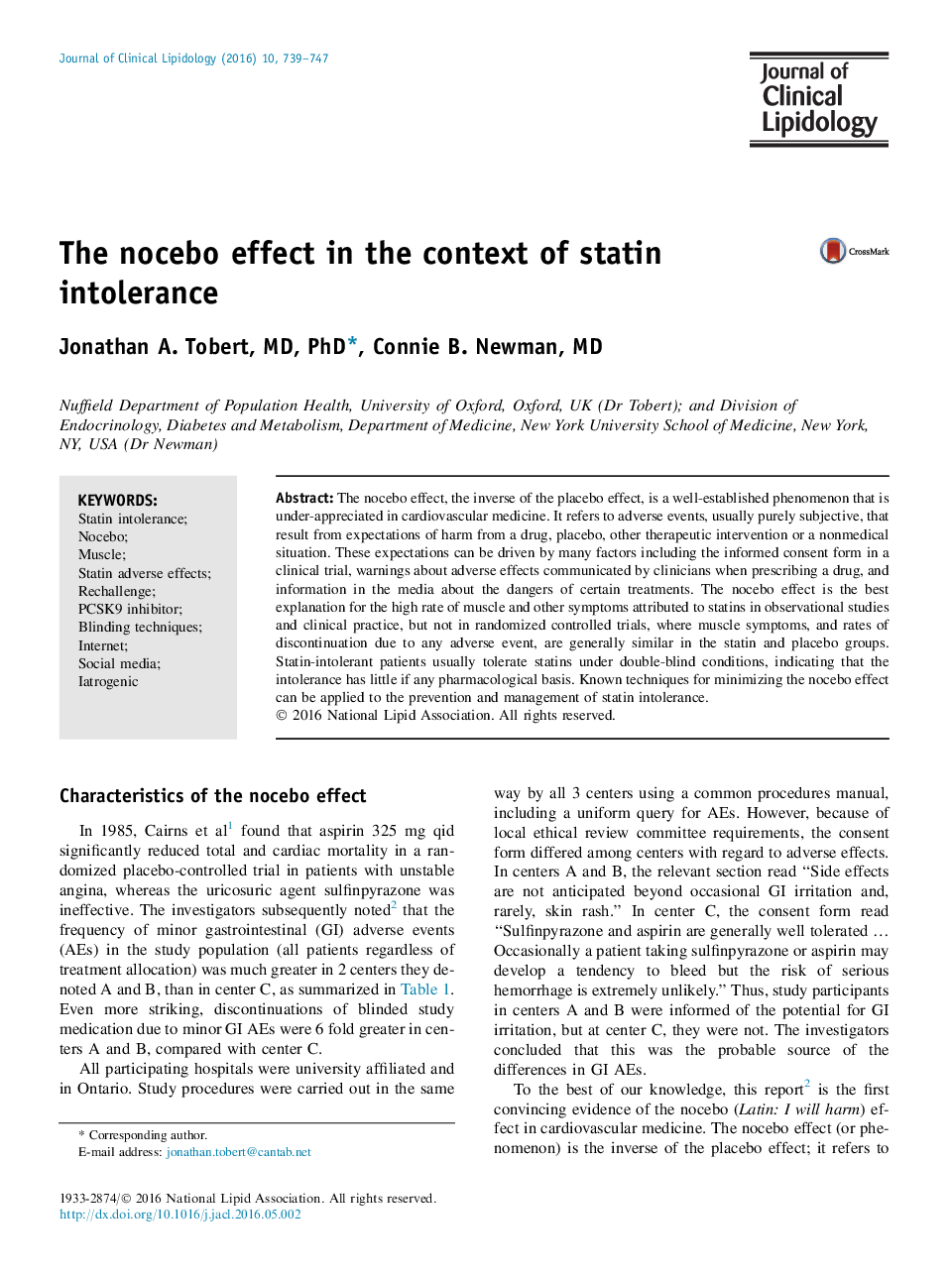| Article ID | Journal | Published Year | Pages | File Type |
|---|---|---|---|---|
| 5615264 | Journal of Clinical Lipidology | 2016 | 9 Pages |
Abstract
The nocebo effect, the inverse of the placebo effect, is a well-established phenomenon that is under-appreciated in cardiovascular medicine. It refers to adverse events, usually purely subjective, that result from expectations of harm from a drug, placebo, other therapeutic intervention or a nonmedical situation. These expectations can be driven by many factors including the informed consent form in a clinical trial, warnings about adverse effects communicated by clinicians when prescribing a drug, and information in the media about the dangers of certain treatments. The nocebo effect is the best explanation for the high rate of muscle and other symptoms attributed to statins in observational studies and clinical practice, but not in randomized controlled trials, where muscle symptoms, and rates of discontinuation due to any adverse event, are generally similar in the statin and placebo groups. Statin-intolerant patients usually tolerate statins under double-blind conditions, indicating that the intolerance has little if any pharmacological basis. Known techniques for minimizing the nocebo effect can be applied to the prevention and management of statin intolerance.
Related Topics
Health Sciences
Medicine and Dentistry
Cardiology and Cardiovascular Medicine
Authors
Jonathan A. MD, PhD, Connie B. MD,
